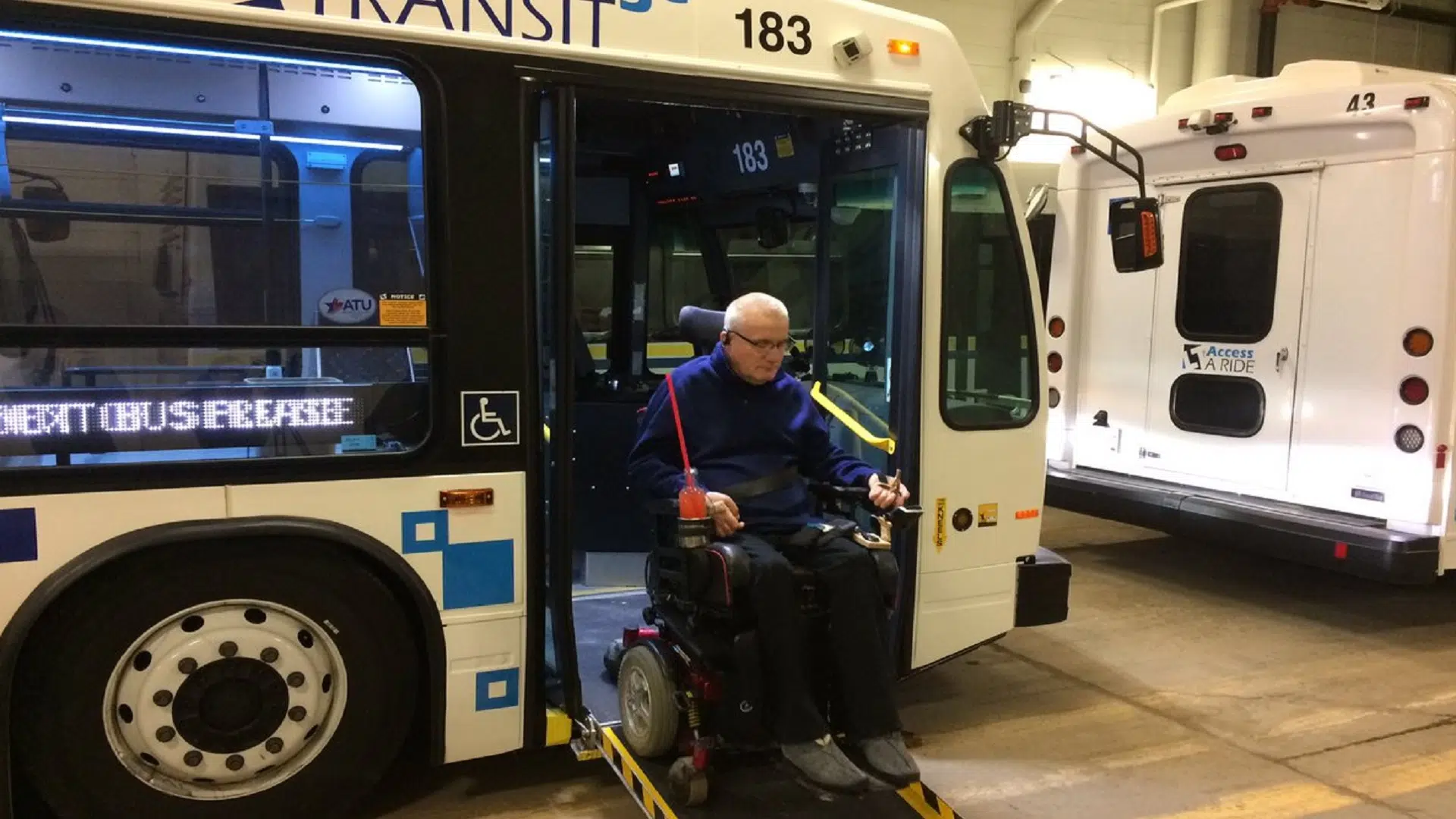
New city buses feature improved accessibility and environmental impact
LETHBRIDGE – The City of Lethbridge showed off one of the newest additions to their transit fleet Wednesday morning (Feb. 1), which features improved accessibility and a reduced environmental impact.
The 40-foot bus is one of six already on city streets — with two more 30-foot buses still coming — and has a fully automated restraint system for riders using a wheelchair or electric scooter, along with what’s called a clean diesel engine.
On older buses, the driver would have to come back and help strap-in the riders chair. Now, either the rider themselves or the driver can simply push a bottom, and the automated arms take care of the rest.
To help demonstrate the accessibility of the new units for the media, Chris Schamber got onto the bus using his motorized wheelchair and had it locked in place with the new system.


